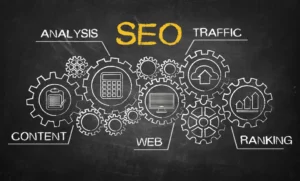Why Every Business Needs a Fixed Asset Management System in Saudi Arabia”
Introduction
In the fast-paced world of business, managing assets effectively is essential to maintaining smooth operations. One of the most critical aspects of this process is managing fixed assets. A Fixed Asset Management System (FAMS) helps organizations track and manage their assets throughout their lifecycle. In this blog, we’ll delve into the importance of a Fixed Asset Management System, its benefits, and why it is especially relevant for businesses in Saudi Arabia. By exploring the key features, challenges, and best practices, this article will serve as a comprehensive guide to understanding the value of adopting such a system.
What is a Fixed Asset Management System?
A Fixed Asset Management System is a software solution designed to help organizations track, monitor, and manage their long-term assets such as machinery, buildings, vehicles, and office equipment. This system ensures that businesses can efficiently manage the depreciation, location, maintenance, and disposal of these assets. It provides a comprehensive overview of all fixed assets, helping businesses reduce operational costs, ensure compliance with regulations, and optimize their asset usage.
Key Features of a Fixed Asset Management System
- Asset Tracking: Keeps track of the location, condition, and ownership status of assets in real time.
- Depreciation Calculation: Automatically calculates the depreciation for each asset, ensuring accurate financial records.
- Maintenance Scheduling: Helps schedule and track maintenance activities for each asset, extending their lifespan.
- Asset Lifecycle Management: Manages the entire lifecycle of assets from procurement to disposal.
- Compliance Reporting: Generates reports for financial audits, tax reporting, and compliance with regulations.
Why Do Businesses Need a Fixed Asset Management System?
An efficient Fixed Asset Management System helps businesses ensure accurate records and reduce the complexities of managing physical assets. Here are several reasons why businesses need to adopt such a system:
1. Improved Accuracy and Accountability
One of the major advantages of using an asset management system is that it ensures accurate asset tracking. With real-time data on asset location, condition, and status, businesses can avoid discrepancies that may arise from manual tracking methods. This accountability is crucial for reducing errors and maintaining an audit trail.
2. Cost Efficiency
A fixed asset management system helps businesses optimize asset utilization by providing detailed insights into asset performance and condition. By effectively managing the maintenance schedules and lifecycle of assets, companies can prevent costly breakdowns and extend asset life, ultimately saving money in the long run.
3. Streamlined Financial Reporting
A Fixed Asset Management System automates tasks like depreciation calculation and asset tagging, making it easier for finance teams to generate accurate financial reports. This reduces the time spent on manual record-keeping and ensures compliance with local accounting standards.
4. Regulatory Compliance
In many industries, businesses are required to maintain accurate records of their fixed assets for tax purposes and regulatory compliance. A Fixed Asset Management System in Saudi Arabia ensures that companies can meet these legal requirements by maintaining detailed records and generating the necessary reports for compliance audits.
5. Enhanced Asset Lifespan
The ability to track asset condition, schedule regular maintenance, and monitor usage patterns helps extend the lifespan of each asset. Preventing asset degradation or failure through timely maintenance is essential to keeping operations running smoothly and avoiding downtime.
Fixed Asset Management System in Saudi Arabia
With Saudi Arabia’s Vision 2030 focusing on economic diversification and technological advancements, businesses in the kingdom are increasingly adopting digital solutions to enhance their operations. A Fixed Asset Management System in Saudi Arabia is an essential tool for businesses that want to improve asset tracking, increase operational efficiency, and comply with local regulatory requirements.
Why is a Fixed Asset Management System Important in Saudi Arabia?
- Economic Diversification Saudi Arabia is pushing for a more diversified economy, with investments in sectors like manufacturing, healthcare, and education. Businesses in these industries need to efficiently manage large numbers of assets to stay competitive, and a Fixed Asset Management System is the ideal solution for this.
- Compliance with Saudi Tax Laws The Kingdom has stringent tax regulations that require accurate financial reporting. A FAMS helps businesses in Saudi Arabia ensure compliance with these regulations by automating tax-related reports and managing the depreciation of assets as per the latest standards.
- Digital Transformation As part of the Kingdom’s digital transformation agenda, many businesses are adopting cloud-based software solutions to streamline operations. Implementing a Fixed Asset Management System as part of this transformation helps businesses achieve greater efficiency and transparency in their asset management practices.
- Saudi Arabian Businesses Are Growing With the rapid growth of businesses in Saudi Arabia, especially in sectors like construction and manufacturing, the need for an efficient system to manage large inventories of physical assets becomes even more critical.
Key Benefits of Implementing a Fixed Asset Management System in Saudi Arabia
Implementing a Fixed Asset Management System in Saudi Arabia can provide significant advantages for businesses. Here are some of the key benefits:
1. Cost Savings and ROI
By automating tasks like asset tracking, depreciation calculations, and maintenance scheduling, companies can reduce administrative overhead and lower costs associated with asset management. The system helps businesses optimize asset usage and prevent unnecessary purchases, which ultimately leads to better return on investment (ROI).
2. Enhanced Transparency
A digital asset management system offers greater visibility into asset status, usage, and maintenance schedules. This transparency is particularly important for businesses in Saudi Arabia that need to report asset-related data to stakeholders, regulators, and tax authorities.
3. Improved Operational Efficiency
With automated processes, businesses can reduce manual work, improve accuracy, and streamline asset-related tasks. This leads to smoother operations and the ability to allocate resources more efficiently.
4. Simplified Tax and Financial Reporting
A Fixed Asset Management System helps businesses manage complex tax reporting and financial accounting processes. By automating depreciation calculations and generating compliance reports, companies can ensure they meet the local financial and tax regulations in Saudi Arabia.
How to Implement a Fixed Asset Management System?
Implementing a Fixed Asset Management System involves several key steps. Here’s a brief guide on how to implement this solution effectively:
1. Identify Business Requirements
Before selecting a system, businesses need to evaluate their needs. What types of assets do you need to track? What level of reporting and analysis is required? This will help determine the best system for your organization.
2. Choose the Right System
There are many Fixed Asset Management Systems available, each with different features and functionalities. Businesses in Saudi Arabia should select a system that fits their specific needs, including compliance with local regulations.
3. Plan for Integration
Ensure that the FAMS integrates smoothly with existing financial, ERP, and inventory management systems. Integration ensures that asset-related data is shared seamlessly across all departments, improving overall business efficiency.
4. Train Employees
Employee training is crucial for the successful implementation of a new system. Ensure that staff members are well-versed in using the system and understand the importance of accurate asset tracking.
5. Monitor and Optimize
Once the system is implemented, continuously monitor its performance and gather feedback from users. Use this feedback to make necessary adjustments and ensure that the system is being used effectively.
Conclusion
In today’s competitive business landscape, managing fixed assets efficiently is essential for maintaining profitability, improving operational efficiency, and ensuring compliance with local regulations. A Fixed Asset Management System provides businesses with the tools they need to track, manage, and optimize their assets, offering benefits such as cost savings, improved accuracy, and enhanced transparency.
For businesses in Saudi Arabia, adopting a Fixed Asset Management System is not just a smart decision—it is a necessary step in their journey toward digital transformation and regulatory compliance. By embracing this technology, companies can better position themselves for success in a rapidly changing market.
FAQs
- What is a Fixed Asset Management System (FAMS)?
A Fixed Asset Management System is a software solution designed to help businesses track and manage their long-term physical assets, including maintenance schedules, depreciation, and compliance reporting. - How can a Fixed Asset Management System benefit businesses in Saudi Arabia?
It helps businesses in Saudi Arabia ensure compliance with local regulations, optimize asset usage, and reduce operational costs. It also supports businesses in the Kingdom’s digital transformation goals. - Can a Fixed Asset Management System integrate with existing financial systems?
Yes, most Fixed Asset Management Systems are designed to integrate seamlessly with financial, inventory, and ERP systems, providing a unified solution for asset tracking and financial reporting. - What are the key features of a Fixed Asset Management System?
Key features include asset tracking, depreciation calculation, maintenance scheduling, compliance reporting, and asset lifecycle management. - How do businesses in Saudi Arabia ensure compliance with tax laws using a Fixed Asset Management System?
The system automates depreciation calculations, generates tax reports, and ensures that businesses meet the required financial and tax reporting standards in Saudi Arabia.













Post Comment